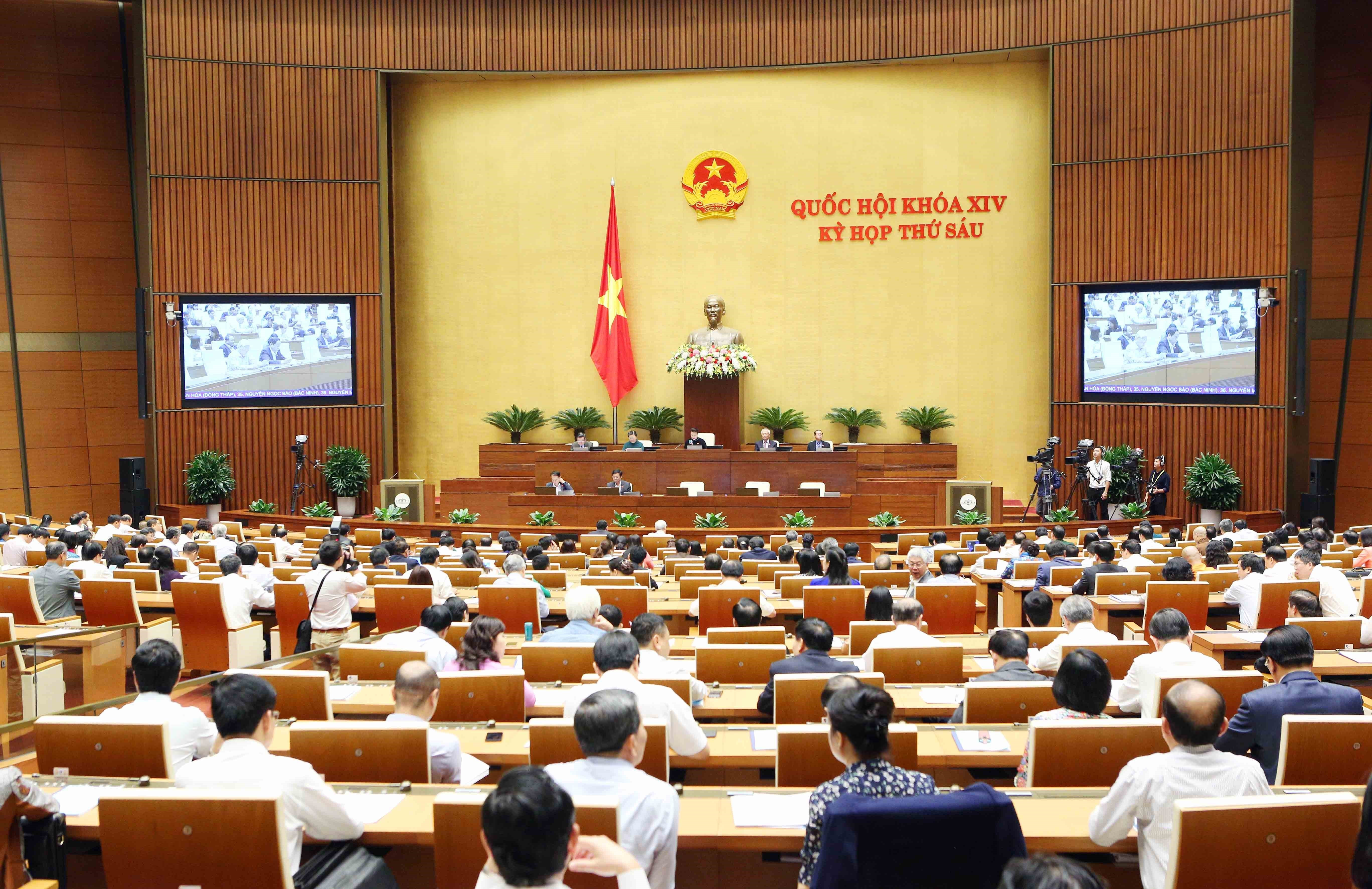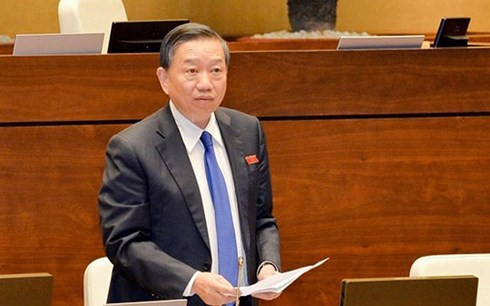Minister of Public Security To Lam: Foreigners are still "cautious" with e-visas
Minister of Public Security To Lam: "The policy is a pilot project, so foreigners are still cautious and tend to use visas in the traditional way."
 |
| Scene of the 6th session - 14th National Assembly. Photo: V.Đ |
Following the working program of the 6th Session, on the morning of November 5, the National Assembly discussed in the hall about extending the implementation period of Resolution No. 30/2016/QH14 on piloting the issuance of electronic visas for foreigners entering Vietnam.
Chairman of the National Defense and Security Committee Vo Trong Viet said that this agency basically agrees with the Government's proposal to ask the National Assembly to allow the extension of the pilot period of issuing electronic visas for foreigners entering Vietnam for 2 years from February 1, 2019 to have more time to test, summarize, and comprehensively evaluate the impact of this policy. On that basis, research and propose amendments and supplements to the Law on Entry, Exit, Transit, and Residence of Foreigners in Vietnam before the end of the pilot period.
The National Defense and Security Committee recommends that the Government direct the Ministry of Public Security to coordinate with relevant ministries and branches to propose adjustments to the list of countries whose citizens are subject to the pilot program, and the list of border gates allowing entry and exit with electronic visas to ensure compliance with the reality and requirements of the pilot program; promptly handle and overcome limitations and shortcomings in the process of organizing the pilot program, ensuring the pilot program is effective and practical.
In addition, the inspection agency also requested to clearly assess the existing problems and potential risks in the entry of foreigners using electronic visas to national security, social order and safety of our country and orient solutions to handle them? Because this is a very sensitive and complicated field of activity, the possibility of affecting national security is always direct and present.
|
| Minister of Public Security To Lam: The Government will carefully consider the scope of border gates applying e-visas. |
Discussing this issue, there were opinions suggesting that the Government clarify the reasons for the very low rate of electronic visa application in order to find appropriate solutions.
According to delegate Bui Van Xuyen (Thai Binh), reports show "reassurance" about ensuring safety, order and national security after nearly 2 years of implementing the Resolution. However, the Government's report only points out the main limitations in the implementation stage without making an in-depth assessment of a very new policy.
“I agree to extend the implementation of the Resolution for another 2 years, but we need to consider whether to expand the countries that are granted e-visas or not? Is it necessary to control at 28 border gates as at present?” – delegate Xuyen raised the issue and noted the need to upgrade equipment and human resources.
The Standing Member of the Law Committee also emphasized that the extension of the implementation of this policy is a temporary measure and not a “pilot on top of a pilot”. Therefore, the Ministry of Public Security needs to soon start preparing to amend and supplement the Law on Entry, Exit, Transit and Residence of Foreigners in Vietnam to soon include it in the law and ordinance-making program.
Explaining some issues of concern to delegates, Minister of Public Security To Lam said that the number of visitors using e-visas is not high, first of all, due to the lack of widespread popularity. It is only limited to 46 countries and 28 border gates, the time is also limited, and the propaganda and introduction work is not strong, so the number of visitors using e-visas is not much.
“Moreover, the policy is a pilot program, so foreigners are cautious and tend to use visas in the traditional way. The pilot program is also limited to a number of countries, border gates and time periods,” Minister To Lam explained, adding that the Government has established a drafting committee to amend the Law on Entry, Exit, Transit and Residence of Foreigners in Vietnam to submit to the National Assembly on schedule.
The head of the Public Security sector also emphasized that the summary shows that management work is guaranteed, meeting the needs, and fees collected are over 200 billion VND, so after the National Assembly allows the continued implementation of the electronic visa policy, there is no need to add more human resources.
Within its authority, the Government will also assess and consider expanding the scope of border gates where e-visas are applied, with careful consideration and step-by-step implementation, to continue attracting foreigners to Vietnam for tourism, seeking investment cooperation opportunities, and serving socio-economic development.
In his conclusion, Vice Chairman of the National Assembly Do Ba Ty emphasized that opinions agreed to extend the pilot period of issuing electronic visas for foreigners entering Vietnam according to Resolution No. 30 for no more than 2 years. During this time, the Government directed relevant agencies to urgently summarize and propose that the National Assembly amend and supplement the Law on Entry, Exit, Transit and Residence of Foreigners in Vietnam to regulate this content.


